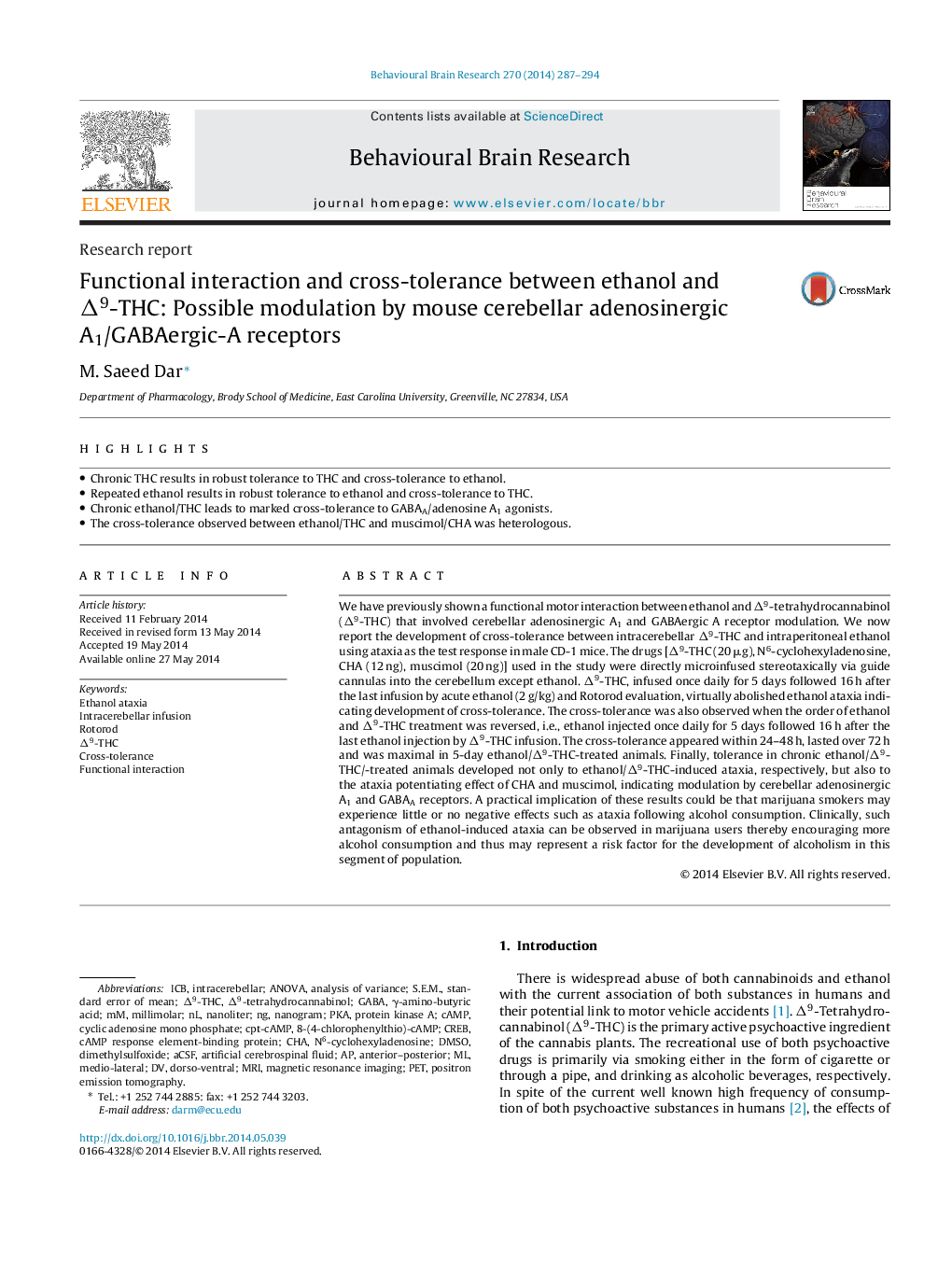| کد مقاله | کد نشریه | سال انتشار | مقاله انگلیسی | نسخه تمام متن |
|---|---|---|---|---|
| 6257949 | 1612962 | 2014 | 8 صفحه PDF | دانلود رایگان |

- Chronic THC results in robust tolerance to THC and cross-tolerance to ethanol.
- Repeated ethanol results in robust tolerance to ethanol and cross-tolerance to THC.
- Chronic ethanol/THC leads to marked cross-tolerance to GABAA/adenosine A1 agonists.
- The cross-tolerance observed between ethanol/THC and muscimol/CHA was heterologous.
We have previously shown a functional motor interaction between ethanol and Î9-tetrahydrocannabinol (Î9-THC) that involved cerebellar adenosinergic A1 and GABAergic A receptor modulation. We now report the development of cross-tolerance between intracerebellar Î9-THC and intraperitoneal ethanol using ataxia as the test response in male CD-1 mice. The drugs [Î9-THC (20 μg), N6-cyclohexyladenosine, CHA (12 ng), muscimol (20 ng)] used in the study were directly microinfused stereotaxically via guide cannulas into the cerebellum except ethanol. Î9-THC, infused once daily for 5 days followed 16 h after the last infusion by acute ethanol (2 g/kg) and Rotorod evaluation, virtually abolished ethanol ataxia indicating development of cross-tolerance. The cross-tolerance was also observed when the order of ethanol and Î9-THC treatment was reversed, i.e., ethanol injected once daily for 5 days followed 16 h after the last ethanol injection by Î9-THC infusion. The cross-tolerance appeared within 24-48 h, lasted over 72 h and was maximal in 5-day ethanol/Î9-THC-treated animals. Finally, tolerance in chronic ethanol/Î9-THC/-treated animals developed not only to ethanol/Î9-THC-induced ataxia, respectively, but also to the ataxia potentiating effect of CHA and muscimol, indicating modulation by cerebellar adenosinergic A1 and GABAA receptors. A practical implication of these results could be that marijuana smokers may experience little or no negative effects such as ataxia following alcohol consumption. Clinically, such antagonism of ethanol-induced ataxia can be observed in marijuana users thereby encouraging more alcohol consumption and thus may represent a risk factor for the development of alcoholism in this segment of population.
Journal: Behavioural Brain Research - Volume 270, 15 August 2014, Pages 287-294